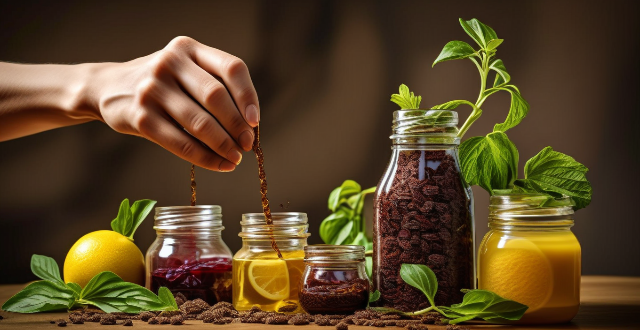Managing menstrual cramps can be achieved through dietary changes. Incorporating magnesium-rich foods, anti-inflammatory foods, staying hydrated, limiting caffeine and sugar, eating small, frequent meals, and considering herbal teas are some tips to alleviate the discomfort. It's crucial to listen to your body and find what works best for you. If symptoms are severe or persistent, it's recommended to consult with a healthcare professional.

Tips for Managing Menstrual Cramps through Diet
Menstrual cramps, also known as dysmenorrhea, can be quite discomforting for many women during their menstrual cycle. While medication and other remedies are available to alleviate the pain, dietary changes can also play a significant role in managing menstrual cramps. Here are some tips:
1. Increase Your Intake of Magnesium-Rich Foods
*Magnesium* is known to help reduce muscle spasms and relax the walls of your uterus, which can alleviate cramps. Some magnesium-rich foods include:
- Dark leafy greens like spinach and kale
- Whole grains
- Nuts and seeds
- Avocado
- Dark chocolate
2. Include More Anti-Inflammatory Foods
Incorporating anti-inflammatory foods into your diet can help reduce inflammation in the body, which may contribute to less painful cramps. These include:
- Berries
- Fatty fish like salmon and tuna
- Olive oil
- Green tea
- Turmeric
3. Stay Hydrated
Drinking plenty of water can help reduce bloating and cramping during your period. Dehydration can make cramps worse, so aim to drink at least 8 glasses of water a day.
4. Limit Caffeine and Sugar
Caffeine and sugar can increase estrogen levels in the body, which may lead to more severe cramps. Try to limit your intake of coffee, tea, soda, and sugary snacks during your period.
5. Eat Small, Frequent Meals
Eating smaller, more frequent meals throughout the day can help regulate blood sugar levels and reduce bloating and discomfort during your period. Avoid overeating or consuming heavy meals, as this can exacerbate cramps.
6. Consider Herbal Teas
Certain herbal teas have been found to help relieve menstrual cramps. Some options include:
- Chamomile tea for relaxation and reducing inflammation
- Peppermint tea for soothing digestive discomfort
- Ginger tea for its anti-inflammatory properties
Remember, what works for one person may not work for another. It's essential to listen to your body and find the dietary changes that work best for you in managing menstrual cramps. If your symptoms are severe or persistent, it's always a good idea to consult with a healthcare professional.